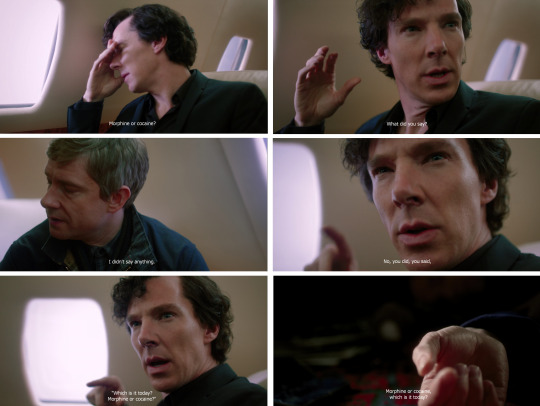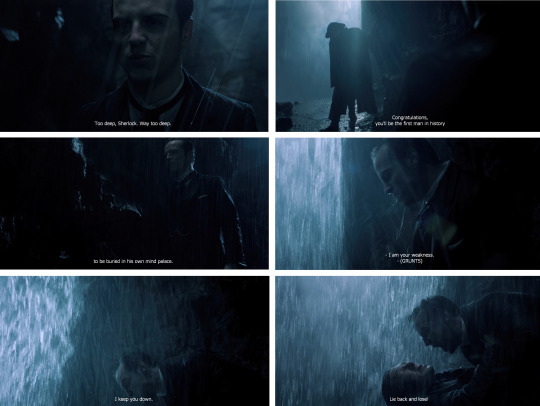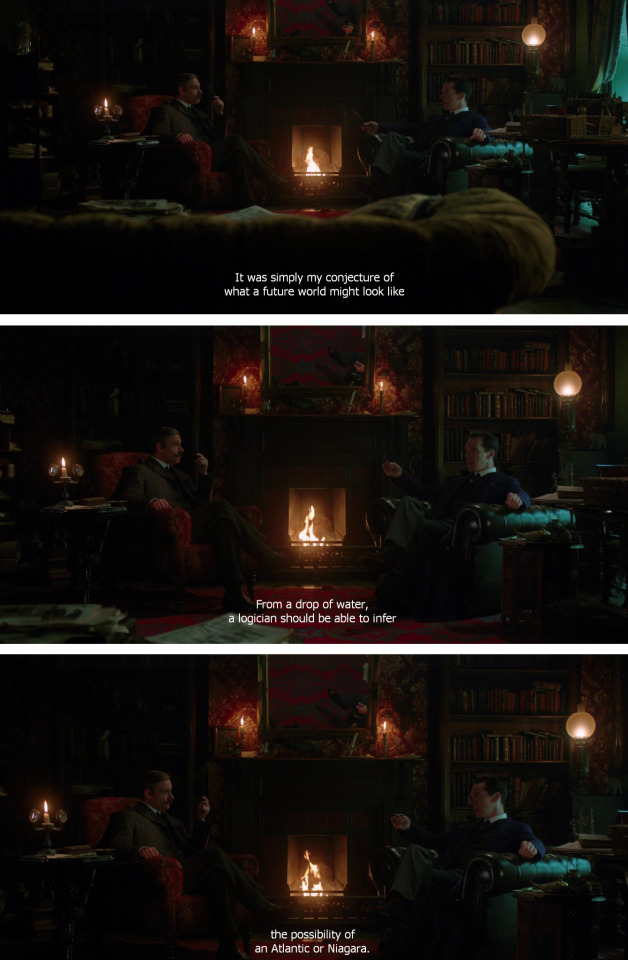#I keep forgetting he is Moriarty because I can't hear anything in his voice
Explore tagged Tumblr posts
Text
You know though I am totally unsurprised by the fact that the only people I saw posting positively about this podcast (apart from the people who seemed to care about it solely for the guy playing Moriarty who don't otherwise seem to give a toss about anything Sherlock Holmes) were the one who was like
'this made me love Moran and normally I hate him'
and the person who complained about there being no platonic content for Moriarty and Moran and how everything is 'shippy' in a place I (basically the only person actually posting anything about them at all) was guaranteed to see their crappy comments and has ignored everything I've said about the characters including all of my in depth character analyses yes including all the stuff that has absolutely nothing to do with shipping or queerness.
I mean I'm really not surprised by people who hate Moran or hate Moriarty and Moran being queer and being in a relationship that's not just a professional one or not simply platonic liking this. But what's in it for me, someone who overall loves these characters and their relationship with all of my heart? Fuck all really, that's what.
Why does the trade off for 'Moriarty and Moran seem to get along and maybe even like each other' seem to have to be 'Moriarty is going to be really boring and also bizarrely (and cloyingly) sentimental for a guy who's supposed to be a/ Professor Moriarty and b/ this brilliant mathematician who sees everything as numbers and equations, and also he's extremely naïve and he spends half his lines talking about how much he loves Rose/how much he loved Rose/how he wanted to marry Rose the first day they met/what the wedding and honeymoon would have been like/how he wants justice for Rose because he loved her so much hey did we forget to mention that he's in love with a woman and he loves her SO much?' (meanwhile most of Rose's scenes seem to be her obviously manipulating him and essentially trying to emotionally blackmail him into finishing some book).
Can I be bothered to listen to another episode tonight, that is the question
#I saw one person though who seemed to care about it solely for the actor#talking about his 'gravelly' voice#I feel like we're not listening to the same thing?#that's their idea of 'gravelly'?#I think his voice is kind of... nothing#I keep forgetting he is Moriarty because I can't hear anything in his voice#that makes it stand out?#Moriarty The Devil's Game
3 notes
·
View notes
Text
Way Too Deep (TAB rewatch)
Going back to The Abominable Bride? What is this madness?
Do not fear, I won't even dwell on the hidden meanings of the whole parallel reality set in 1895. Instead, this will be the beginning of my modest attempt (read: slightly disfunctional coping method) at making some sort of sense out of S4. I could read all the meta, and agree with it even, but at the end of the day I just have to take the raw data and digest it on my own.
Why start from TAB? If I recall correctly, it wasn't originally conceived as a bridge between the two seasons – and yet, it has such a peculiar structure that I can't justify it being just a coincidence. If you will, I'll look at the frame rather than the picture.
TL; DR: what if Sherlock overdosed on the tarmac plane... and never came back?
So, let's begin well into the third act (1 hour or so into the episode):
MORIARTY: Because it’s not the fall that kills you, Sherlock. Of all people, you should know that. It’s not the fall. It’s never the fall...It’s the landing.
Sherlock wakes up on the plane and the narrative trick gets exposed: the Victorian adventures were a creation of Sherlock's drug-fueled mind.
Sherlock's usage is not exactly news to us - hello, heartbroken Shezza in a crack den - but this time it feels different. It's not just escapism or the siren's call of addiction; he doesn't look high, not even to John Watson MD, which by the way has already seen him under the effect. This is the very intentional treading the fine line between sanity and delirium, between life and death:

JOHN: For God’s sake! This could kill you! You could die!
SHERLOCK: Controlled usage is not usually fatal, and abstinence is not immortality.
...all for the sake of "solving a case" or, should we put it in plain words, going deep and deeper into his own mind.
Strap yourselves in, 'cause we're going for a ride. From this moment on, we'll bounce back and forth between reality and hallucination, the two separated by a boundary so unstable that we won't even see it.
Notice how heavily drugged-Sherlock sounds fairly coherent so far – and yet, when Mycroft speaks:

MYCROFT: A week in a prison cell. I should have realised [...] that in your case, solitary confinement is locking you up with your worst enemy.
...his mind palace fabrication unexpectedly bleeds into reality:

JOHN (offscreen): Morphine or cocaine?
SHERLOCK: What did you say?
JOHN: I didn’t say anything.
SHERLOCK: No, you did. You said ...
(As he says the next sentence, it’s Sherlock’s lips moving but we hear John’s voice.)
SHERLOCK/JOHN: Which is it today – morphine or cocaine?
What did spur this abrupt transition? What is Sherlock's worst enemy? Himself, his addiction or... Moriarty, though a figment of his imagination, trapped in his mind palace?
Victorian Sherlock goes on with his investigation, which ends with the crypt scene. Sudden plot twist: under the bride's veil there's not Mrs. Carmichael, but... Moriarty again.

MORIARTY: Is this silly enough for you yet? Gothic enough? Mad enough, even for you? It doesn’t make sense, Sherlock, because it’s not real. None of it. [...] This is all in your mind. [...] You’re dreaming.
Cue another transition to a hospital room, which looks just a bit surreal. What's up with the red blanket and the carpeted floor? Why is Sherlock just lying there in his suit?

Doesn't look very much like an overdose intervention... because it isn't. This is not reality.
In fact, Sherlock goes on all jolly to unbury Emelia's corpse (let me be pedant: just like a recent overdose patient should do), and we're given a couple lines that reinforce how much of a pressing matter all this is to him:
SHERLOCK: It’s why we came here! I need to know.
JOHN (turning away): Spoken like an addict.
SHERLOCK (straightening up to look at him): This is important to me!
Sherlock and Lestrade dig, Mycroft supervises (lazy sod, eheh), until the casket is unearthed – pay attention to what Mycroft says here:
MYCROFT: We do have slightly more pressing matters to hand, little brother. Moriarty, back from the dead?
And yes, immediately after Moriarty is mentioned, another turn into surreality takes place; the skeleton moves on its own, a spectral voice calls, and Sherlock is back to his mind palace.

VOICE (rhythmically, as if reciting lyrics to a song): Do not forget me.
... and Holmes starts violently and wakes up to find himself lying on his side on a narrow rocky ledge. Water is pouring over him as if it is raining heavily.
HOLMES : Oh, I see. Still not awake, am I?
"Still not awake" - what a peculiar choice of words. The line between reality and hallucination is feeble because it's not there; the plane, the hospital, the cemetery? All fabrications of his own mind.
Look, even Moriarty must be tired of beating around the bush, 'cause he doesn't talk in riddles anymore. He just lays it out:

MORIARTY: Too deep, Sherlock. Way too deep. Congratulations. You’ll be the first man in history to be buried in his own Mind Palace.
MORIARTY: I am your WEAKNESS!
MORIARTY: I keep you DOWN!
MORIARTY: Every time you STUMBLE, every time you FAIL, when you’re WEAK...
MORIARTY: I... AM... THERE!
MORIARTY: No. Don’t try to fight it. LIE BACK AND LOSE!
So, not only Sherlock has gone deep into his mind palace, he never got out of it and he literally can't.
John coming to the rescue must represent Sherlock finally waking up... or does it?

WATSON: So, how do you plan to wake up?
HOLMES: Between you and me, John, I always survive a fall.
In fact, Sherlock jumps and falls deeper down and while we're told he always survives the fall, we're never told about the landing. We're circling back to what Moriarty said.
At this point, is Sherlock waking up on the plane again even real? Do overdosed people just wake up like that, and go on with their day like nothing's happened?
Furthermore, if Sherlock really woke up on the plane, this should be where the episode ends.
Why, instead, go back again to 1895?

HOLMES: It was simply my conjecture of what a future world might look like, and how you and I might fit inside it.
HOLMES: From a drop of water, a logician should be able to infer the possibility of an Atlantic or a Niagara.
Where is this happening? What's the "Atlantic" (or Niagara, or Reichenbach) we should be able to infer?
The structure of TAB – the back and forth between past and present, fiction and reality - reminded me of this zen koan:
"Once upon a time, I, Zhuangzi, dreamt I was a butterfly, fluttering hither and thither, to all intents and purposes a butterfly. I was conscious only of my happiness as a butterfly, unaware that I was Zhuangzi. Soon I awakened, and there I was, veritably myself again. Now I do not know whether I was then a man dreaming I was a butterfly, or whether I am now a butterfly, dreaming I am a man. Between a man and a butterfly there is necessarily a distinction. The transition is called the transformation of material things."
As you may know, a koan is a paradox: for instance, you can't be both man and butterfly, but at the same time you can't be definitively sure about one or the other. This is where we're left at the end of the episode – hanging on the doubt that what we've seen so far has been imagination disguised as reality: Sherlock can't be both in present time (having woken up on the plane) and in the Victorian setting we've just seen.
So we should infer that he is still stuck in his mind palace, and his hallucination is not only about the 1895 timeline, but comprises all the scenes set in present time, too -"It was simply my conjecture of what a future world might look like"; also, he might have overindulged with his drugs, to the point of never coming back to consciousness.

WATSON: As for your own tale, are you sure it’s still just a seven percent solution that you take? I think you may have increased the dosage.
Notice how the overdosing incident will never be mentioned again, which makes sense if we assume that it's a point stuck in time with no foreseeable resolution – an idea which is supported by Mycroft's notebook, in the form of the Minkowski Metric we can see there:
a formula referring to special relativity, more specifically "the spacetime interval between any two events is independent of the inertial frame of reference in which they are recorded" (x)
All this, in the perspective of interpreting S4, makes for an interesting premise... but we'll look into it another time.
_____
Dialogue transcript source: Ariane DeVere
240 notes
·
View notes